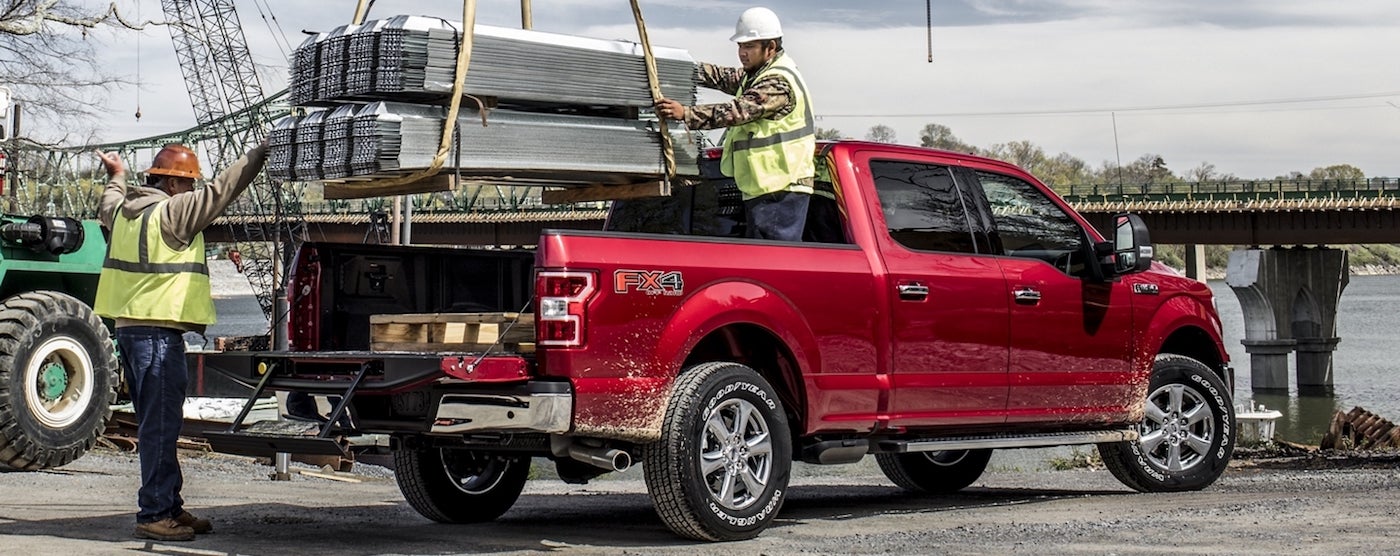Diesel vs. Gas Trucks: Which Is Right for You?

Interested in purchasing a new Ford F-150 or Ford Super Duty? Then you’re likely debating between diesel and gas engines. What are the pros and cons of choosing a diesel vs. gas truck? Discover the difference with Jim Hudson Ford to understand how either powertrain will affect your Irmo drives!
Diesel vs. Gas Trucks Pros and Cons
When it comes down to it, deciding between a diesel and a gas truck depends upon your preferences and what you need to do with your pickup. Discover some pros and cons of each:
Reasons to Choose a Diesel Truck
- Torque and Towing: Diesel engines tend to generate a significant amount of torque, which in turn leads to the ability to tow hefty loads. As such, they’re often go-tos as work trucks and transportation vehicles.
- Efficiency: As you peruse engine lineups, you may notice that diesel engines often achieve better fuel economy ratings than gas engines. Diesel fuel may be more expensive, but you certainly won’t have to fill up as often around Columbia.
- Longevity: According to both anecdotal and scientific evidence, diesel engines often last much longer than gas powertrains. Why? They’re more simply designed and boast stronger engine blocks. If maintained properly, diesel engines may power your vehicle for 500,000 miles or more.
Reasons to Choose a Gas Truck
- Acceleration and Horsepower: Whereas diesel engines promise more torque, gas engines typically generate more horsepower. In turn, gas engines also provide stronger acceleration.
- Fuel Accessibility: All gas stations offer regular fuel, but the same can’t be said for diesel fuel. So as you pass through Chapin, you won’t have to worry about where to fill up if you’re driving a car with a gas engine.
- Easier Maintenance: Contrary to popular belief, the simpler design and construction of diesel engines doesn’t necessarily make them easier to maintain. Gas engines are more common, too, so parts for them are more readily available.
Technical Comparison: Gas and Diesel Engines
Want to know how gas and diesel trucks compare on a technical level? Consider the following:
- Combustion: As internal combustion engines, gas and diesel powertrains convert fuel into energy within the engine itself.
- Compression: Gas engines compress air and fuel at an approximate 10:1 ratio, as compared with the diesel engine ratio range of 15:1 and 25:1. This results in a much hotter cylinder, which is why diesel engines don’t need spark plugs.
- Efficiency: Higher compression ratios lead to smaller differences in the minimum and maximum temperatures in the engine. This smaller difference then boosts fuel economy in diesel engines.
Test Drive Diesel and Gas Trucks at Jim Hudson Ford
Want to experience the difference between diesel and gas trucks for yourself? Get in touch with Jim Hudson Ford to schedule a test drive near Columbia! We can also help you determine whether you should lift your truck at home or connect with Jim Hudson Ford for assistance instead. Still deciding which truck to drive home? See how the Ford F-150 compares to the RAM 1500.

